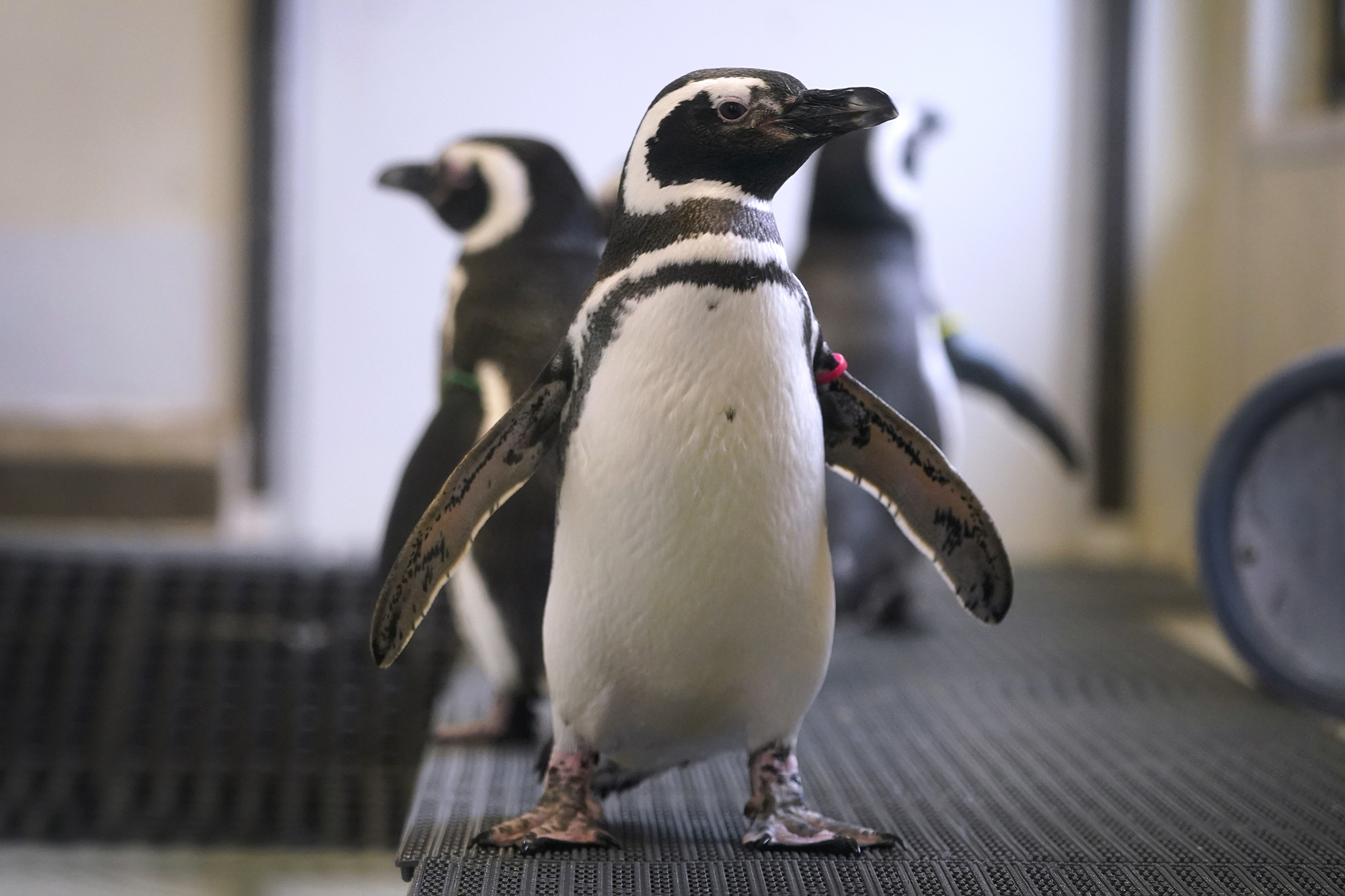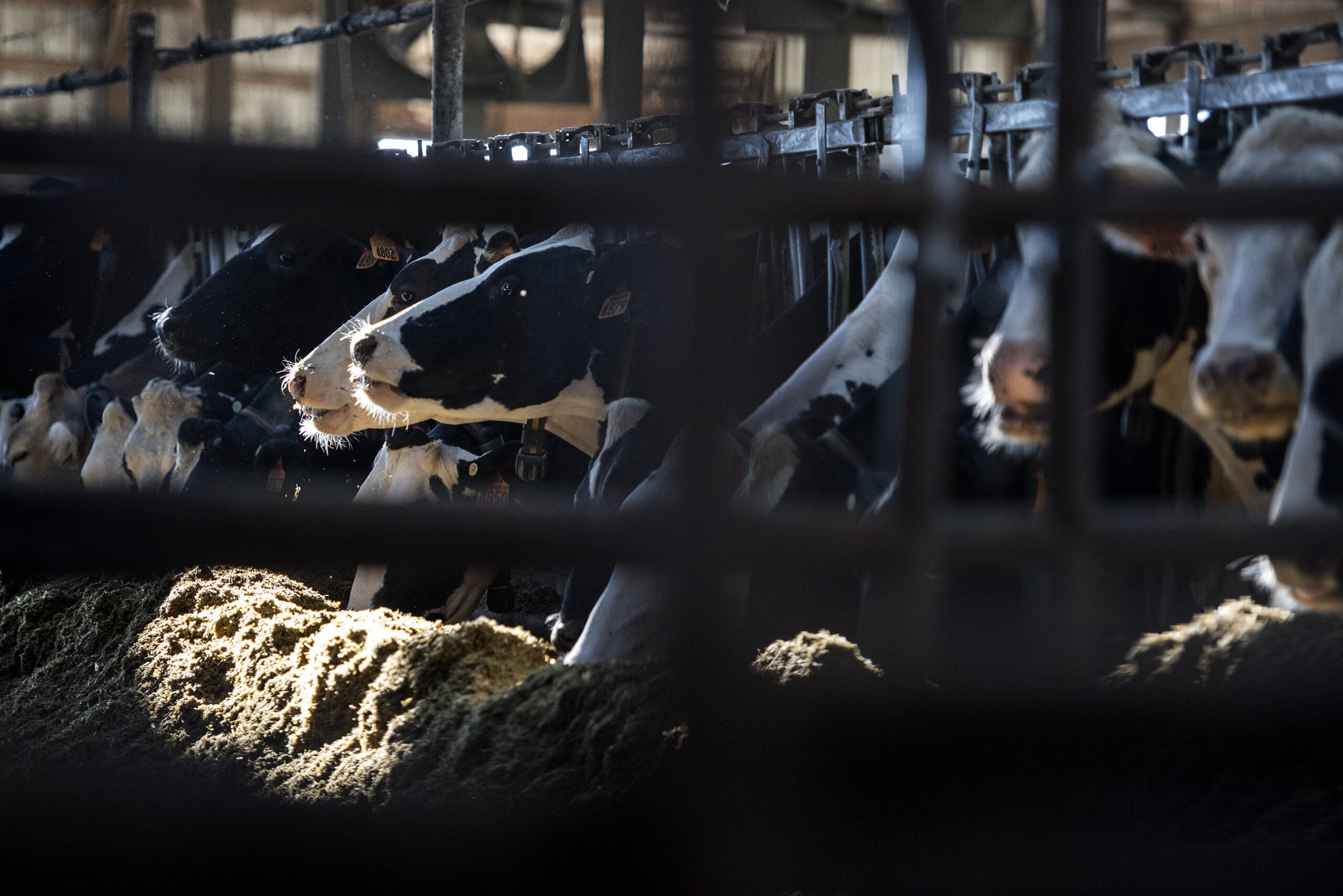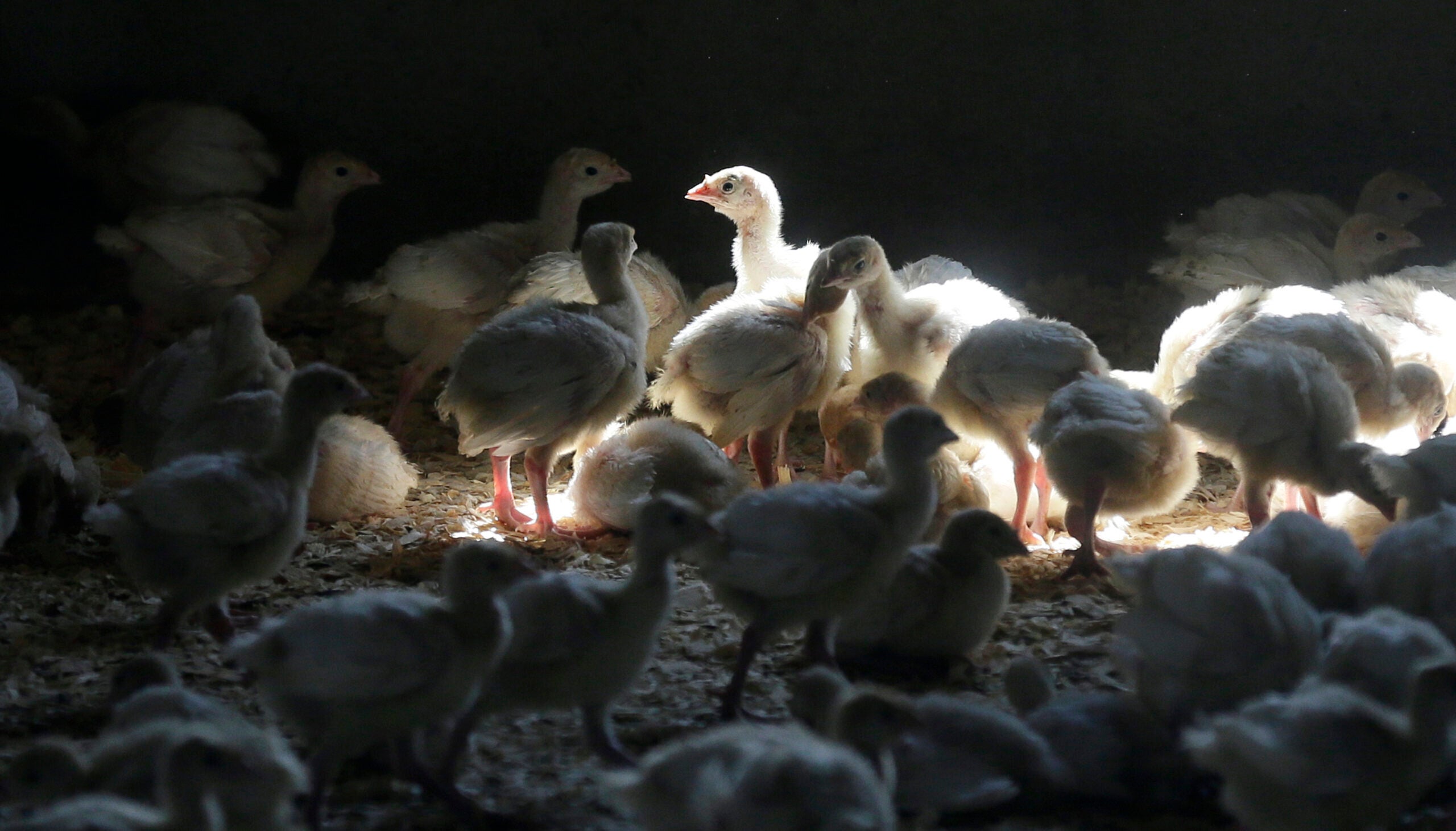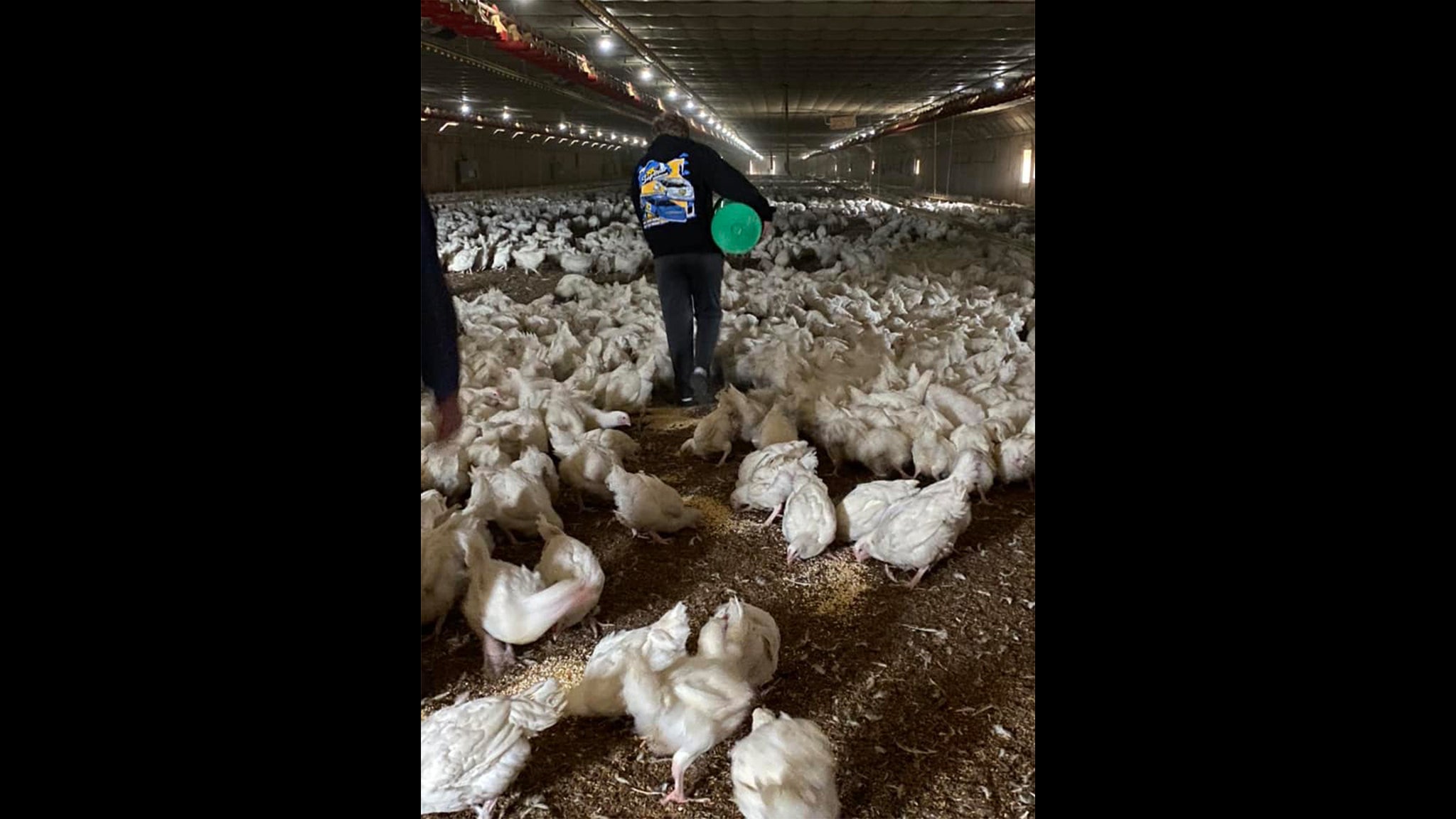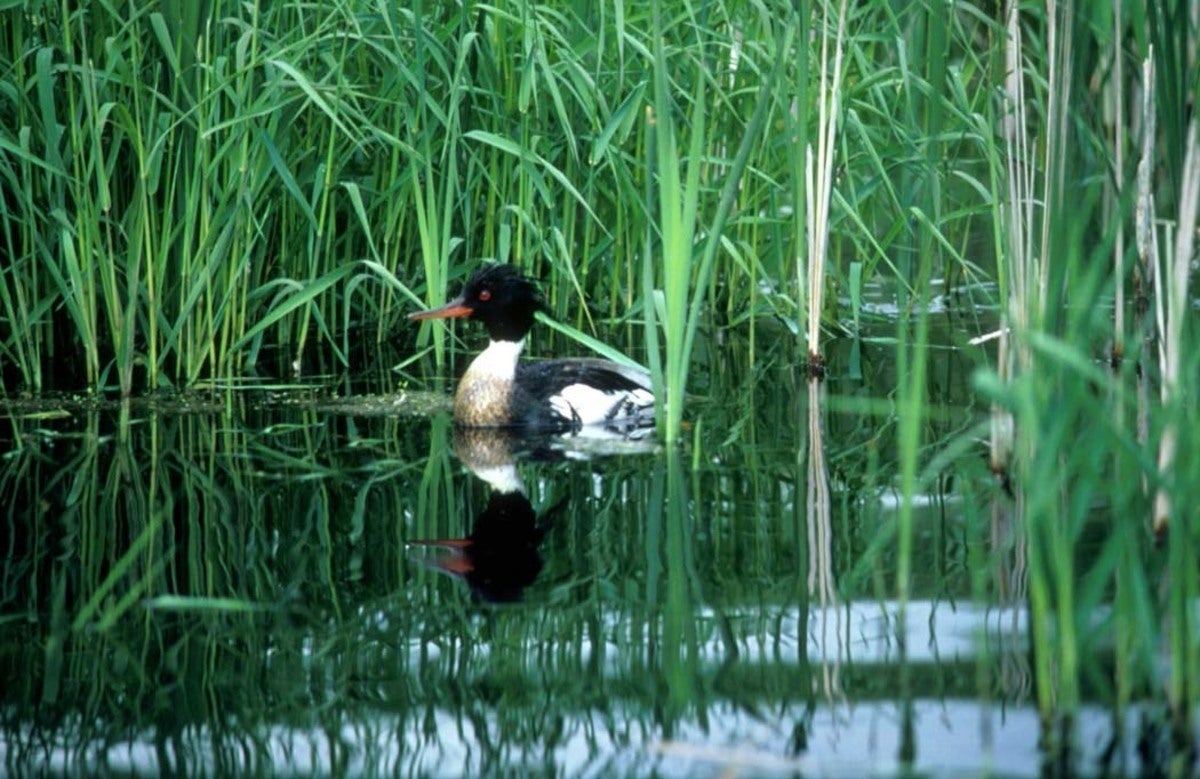Normally at this time of year, staff at Heartland Farm Sanctuary in Verona would be gearing up for the wave of visitors coming to pet, cuddle and admire their adorable menagerie of farm animals.
“Lots of sheep snuggles and goat scratches,” said Jamie Monroe, the sanctuary’s communications director.
Instead, public and private tours are on hiatus, and the sanctuary’s feathered residents are quarantined in the barn in an effort to protect the chickens, turkeys, ducks, geese and emus from the recent avian flu outbreak.
News with a little more humanity
WPR’s “Wisconsin Today” newsletter keeps you connected to the state you love without feeling overwhelmed. No paywall. No agenda. No corporate filter.
Like Heartland Farm, zoos and animal sanctuaries across Wisconsin are taking precautions to protect their birds.
Initially detected in Wisconsin on a Jefferson County poultry farm, the highly pathogenic avian influenza (HPAI) is now believed to have originated with wild birds. And with spring migration in full swing, there is a risk of wild birds bringing the disease to new locations.
Monroe said quarantining the animals at the sanctuary is just as disappointing for the birds as it is for prospective visitors.
“After a long winter, everybody wants to kind of get outside and stretch their wings, and it’s just not safe. So we’re keeping everyone indoors until it’s no longer a threat,” Monroe said. “We successfully navigated avian flu in 2015, so this is a road we’ve traveled before.”
Milwaukee County Zoo’s aviary is temporarily closed to protect its birds, senior staff veterinarian Pamela Govett said. As state’s largest zoo, Milwaukee has an enormous collection of birds — everything from flamingos and hornbills to vultures, penguins and ostriches.
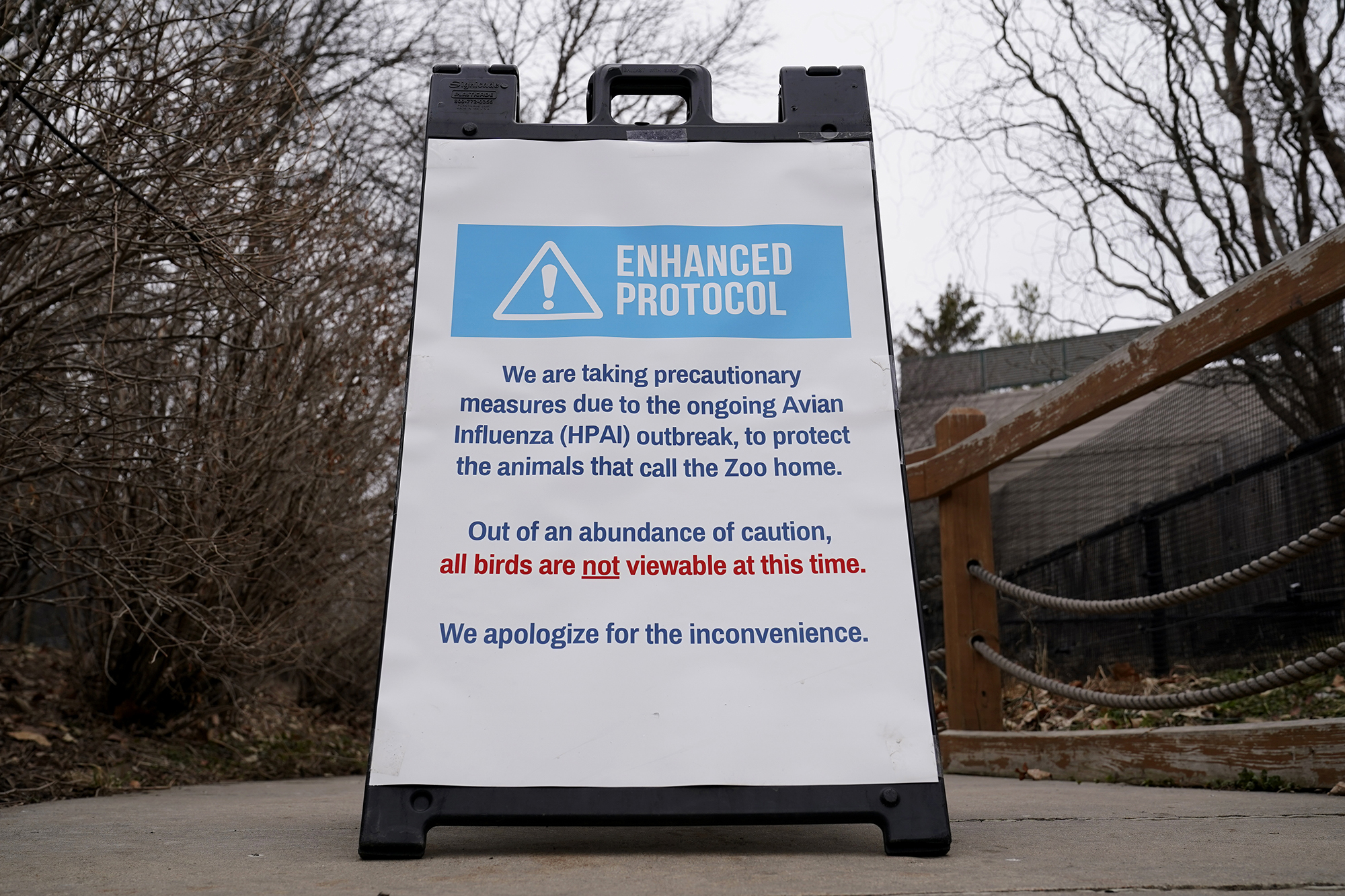
“Avian influenza can be transmitted by feces, oral, nasal or respiratory secretions. And while we don’t think that the people are going to be transmitting it to the birds, they could definitely track it in on their clothing and their shoes,” Govett said.
The zoo has also moved some birds — like ostriches, flamingos and Humboldt penguins — to isolated indoor locations.
Govett said the staff who work with the birds or clean the enclosures are operating like frontline workers in the COVID-19 pandemic: ramping up their PPE use to keep transmission risk low.
“(Staff) come in from home, change their clothes, change shoes — they have boots designated specifically for the aviary … And they have foot baths that they’re sticking their feet in everywhere to disinfect their feet so they’re not tracking in any feces. And then they are repeating that whole process before they go home,” Govett said.
The Racine Zoo, home to a stork aviary, a flock of budgies, African penguins and a raptor roost, is relying on similar precautions, most of which have been in place since the 2015 avian flu outbreak, said Aszya Summers, curator of animal care and conservation education.
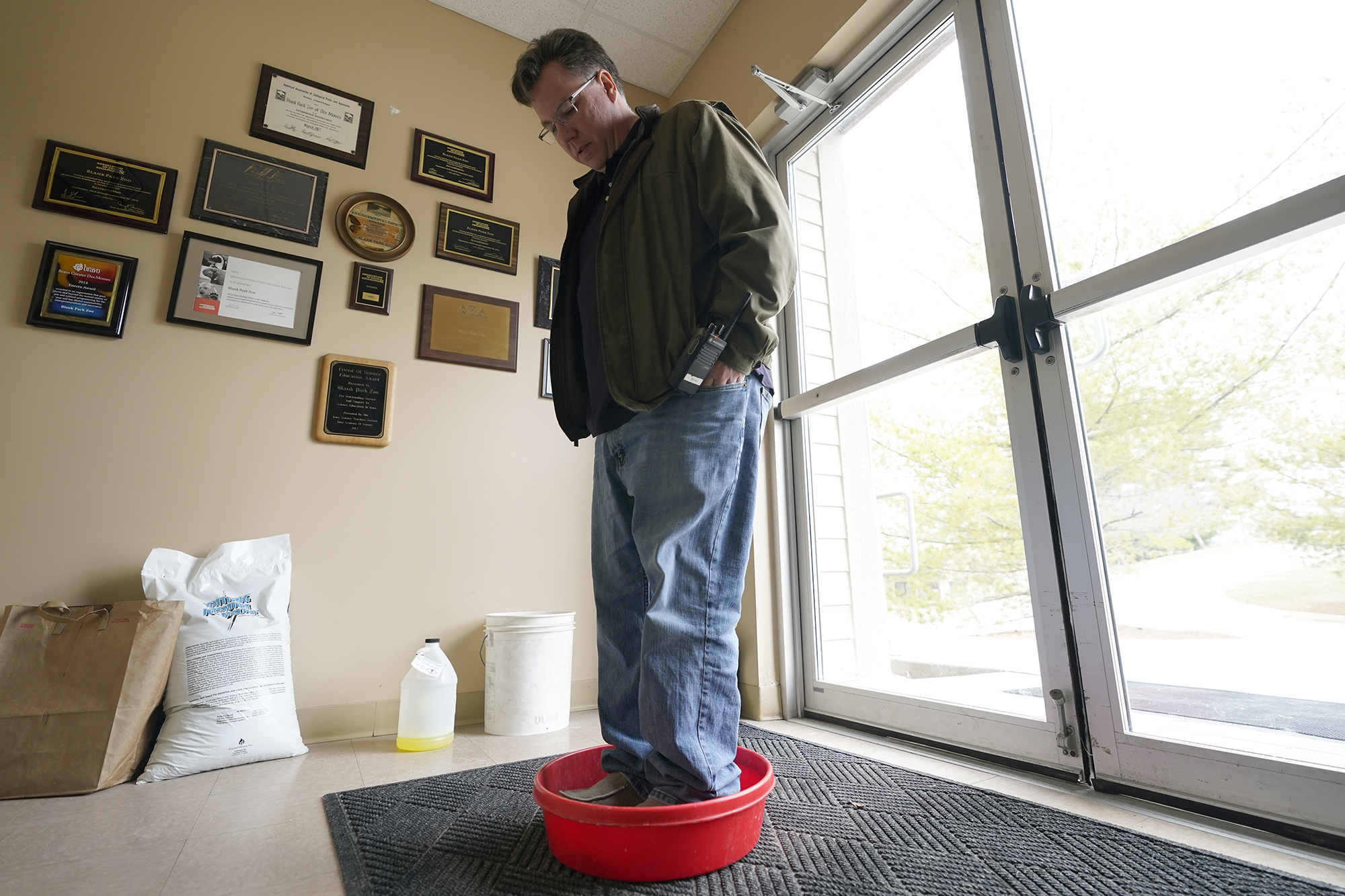
“Going in and out of bird enclosures, we do foot baths, we wear booties or change shoes every single time. We wear gloves, we wash our hands. And all of that we’ve been doing since 2015. So all of those pieces are still there,” Summers said.
As an added precaution this year, the zoo installed tarps over the tops of its bird enclosures, so the animals can be outside without risking exposure to contaminated fecal droppings from wild birds passing overhead.
Still, Summers said they may pull birds inside occasionally or ask guests to take additional precautions as needed.
“We just asked everyone to be understanding and realize, you know, when we have foot baths, extra hand washes or animals off exhibit, that we’re doing the best that we can for the animals.”
Henry Vilas Zoo in Madison issued a statement in March saying its aviary would be closed through April.
“We have many endangered birds species on grounds and our main priority right now is to do everything we can to protect them,” said Joseph Darcangelo, deputy zoo director. “We have instituted our disease outbreak protocols to protect our high-risk bird species who live at the Zoo. This includes moving certain birds indoors to prevent the transmission of HPAI from wild birds, especially waterfowl.”
According to the statement, the zoo’s flamingos, chickens and penguins were moved indoors and its sandhill crane is being relocated to the Animal Health Center as an added precaution.
The current outbreak, the deadliest since 2015, has killed nearly 23 million birds across 24 states.
In Wisconsin there have only been three reported sites of domestic infections — the initial Jefferson County egg-laying facility, a backyard flock in Rock County and a poultry farm in Racine County. All of them underwent severe population culling to contain the disease. But there have been at least six instances of infection in wild birds.
On Friday, the Department of Agriculture, Trade and Consumer Protection announced it was suspending all poultry shows, exhibitions and swap meets through May 31 in an effort to stop the spread. They encouraged poultry owners to continue practicing strict biosafety measures and report any signs of the virus in their birds.
While the disease can be devastating for bird populations — particularly waterfowl and domestic poultry — it is extremely rare for humans to become infected. In fact, there has never been a reported case of a human being infected with avian flu in the United States.
And according to the Centers for Disease Control and Prevention, proper handling and cooking of eggs and poultry will kill any bacteria or virus present, making them safe for consumption.
Wisconsin Public Radio, © Copyright 2026, Board of Regents of the University of Wisconsin System and Wisconsin Educational Communications Board.

